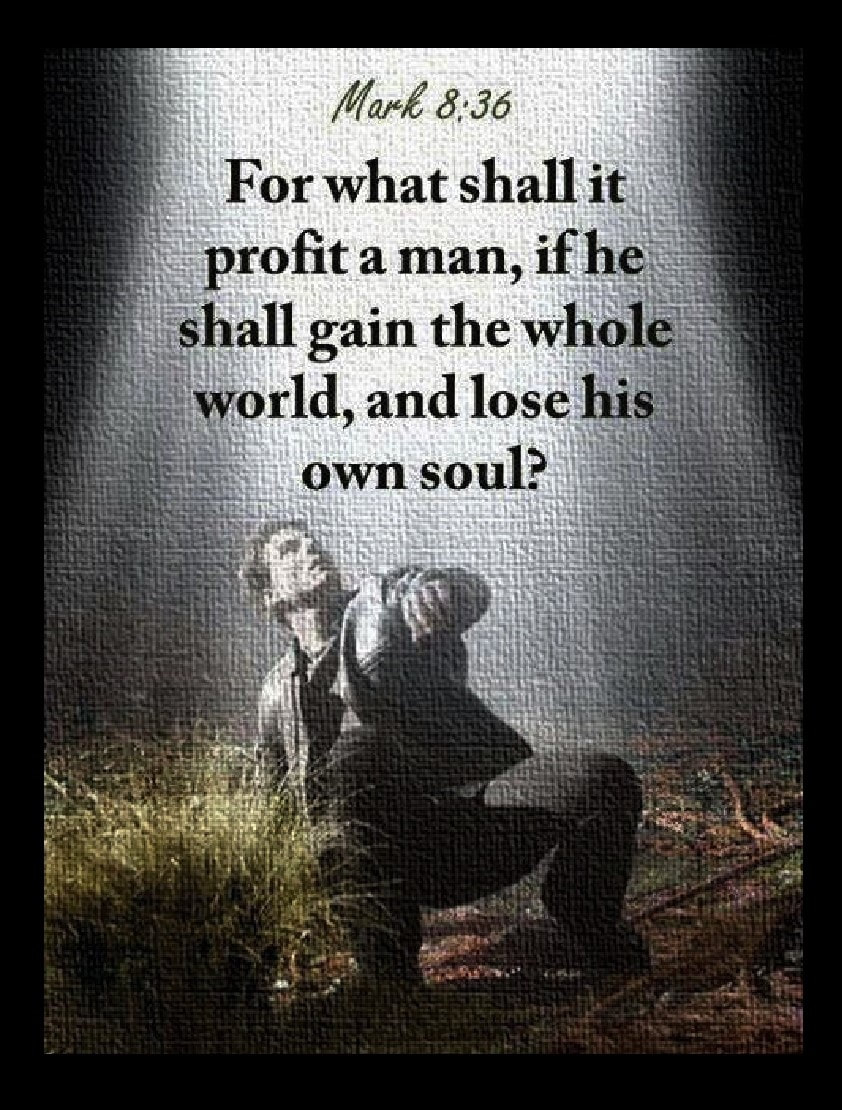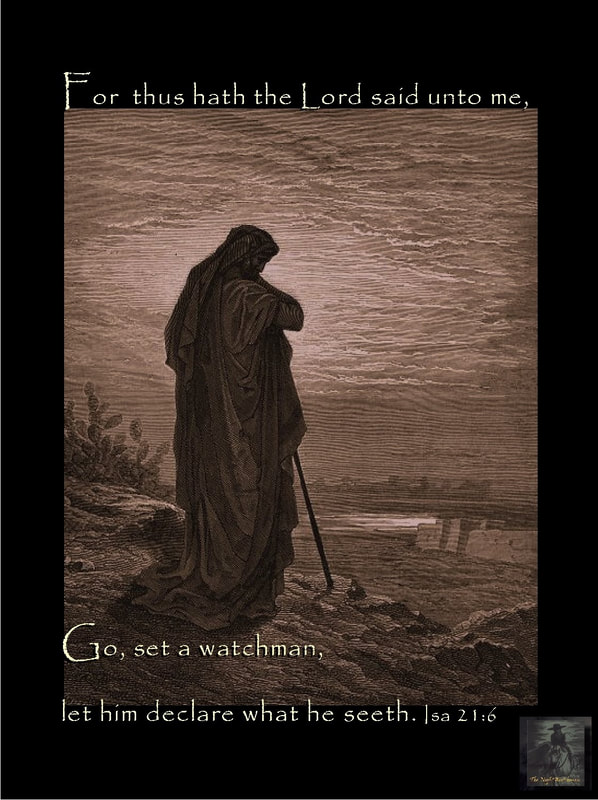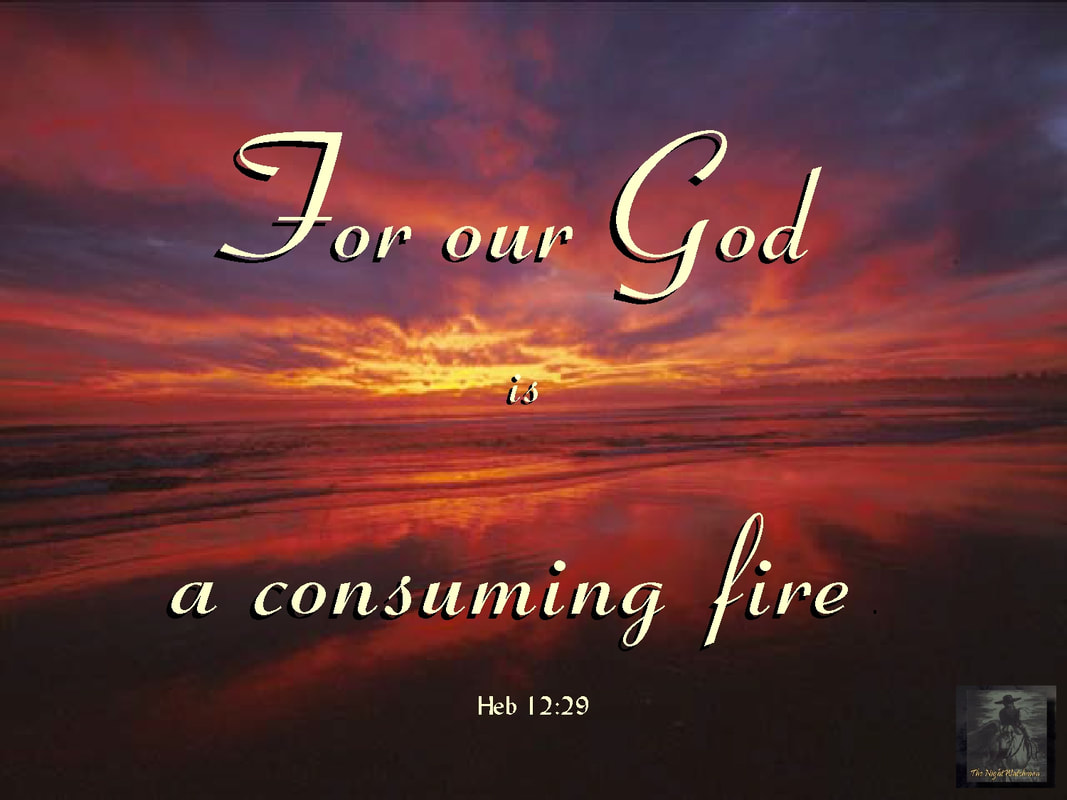|
And Abraham answered and said, Behold now, I have taken upon me to speak unto the Lord, which am but dust and ashes: Gen 18:27 Abraham’s intercession for Sodom THE FRIEND OF GOD HAS POWER WITH GOD. “Shall I hide from Abraham that thing which I do?” The Divine Friend recognizes the obligation of confidence. True friendship is frank, and cannot bear to hide its purposes. On the human side, we are here taught the great truth that God’s friends are intercessors, whose voice has a mysterious but most real power with God. If it be true that, in general terms, the righteous are shields and sources of blessing to the unholy, it is still more distinctly true that they have access to God’s secret place with petitions for others as well as for themselves. The desires which go up to God, like the vapours exhaled to heaven, fall in refreshing rain on spots far away from that whence they rose. In these days we need to keep fast hold of our belief in the efficacy of prayer for others and for ourselves. God knows Himself and the laws of His government a great deal better than anybody else does; and He has abundantly shown us in His Word, and by many experiences, that breath spent in intercession is not wasted. In these old times, when worship was mainly sacrificial, this wonderful instance of pure intercession meets us, an anticipation of later times. And from thence onwards there has never failed proof to those who will look for it, that God’s friends are true priests, and help their brethren by their prayers. Our voices should “rise like a fountain night and day” for men. But there is a secret distrust of the power and a flagrantly plain neglect of the duty of intercession nowadays, which needs sorely the lesson that God “remembered Abraham” and delivered Lot. Luther, in his rough, strong way, says: “If I have a Christian who prays to God for me, I will be of good courage, and be afraid of nothing. If I have one who prays against me, I had rather have the Grand Turk for my enemy.” (A. Maclaren, D. D.) THE TRUE CHARACTER OF THE BEST WORSHIPPERS “Dust and ashes.” The terms seem to indicate-- 1. Our origin and mortality. Formed of the dust; residents of the dust; travellers to the dust. 2. Our depravity. Dust and ashes. Ashes are only the refuse of what was once more valuable. Now man is fallen, debased, and worthless. III. IN WORSHIP GOD ALLOWS US TO SPEAK UNTO HIM. Now, we do this-- 1. In adoration and praise. 2. In confession of sin. 3. In supplication and prayer. (1) With reverential fear. “In Thy fear will I worship.” (2) With deep self-abasement. (3) With resignation to His divine will. (J. Burns, D. D.) The World’s Obligation to God’s Saints THE CERTAIN DESTRUCTION OF THE WICKED; "which some people say they cannot believe, because out of harmony with their notions of the character of God. God is determined on the destruction of the cities of the plain, and all their inhabitants; and He gives these reasons (Gen_18:20)—“The cry of Sodom and Gomorrah is great, and their sin is very grievous,” or heavy. Observe-- 1. The cry was very great. A cry of blood, like that of Abel’s from the ground, for vengeance against the murderer (Gen_4:10). Murder, no doubt, was rife in Sodom; and He who had demanded blood for blood, could not overlook it. A cry of proud defiance against God, as represented Eze_16:49-50; and that God knows too well what is due to Himself to disregard. A cry of oppression, injustice, and wrong. The cry of defrauded labourers, which the Apostle James says, “enters into the ears of the Lord of Sabaoth” (Jas_5:4). A cry of cupidity, drunkenness, and revelry, such as went up to Jehovah from those whom He had called to be His people, and to whom “He looked for judgment, but beheld oppression; for righteousness, but beheld a cry” (Isa_5:7). And shall we not add, a cry from the vexed spirit of righteous Lot—a cry of filial supplication mingling its music, so agreeable to the ears of a loving Father, with the hoarse discord of angry passions and self-inflicted woes? Doubtless that cry from Lot brought down the Omnipotent avenger; and the accumulated cry from the multitude “which no man could number,” of His blood-bought people, who have complained to Him of their treatment from a Satan-ruled world, in every generation since, shall at last bring Him down again, to teach the persecutors that they have persecuted not them but Him Act_9:4). 2. Their sin was very grievous, or heavy. Like a black cloud, gathering increased density from accumulated vapours of human wickedness until it becomes so charged with rain, thunder, lightning, and tempest, that it must at length empty itself upon the devoted earth over which it lowers. Thus sin cannot be suffered to press upon God’s creation for ever—sooner or later it shall be removed, and all who have their life in it must perish. 3. The signal destruction of Sodom and her kindred cities was resolved on. God is a Sovereign Judge and Ruler. To Him vengeance belongs. “He can create and He destroy.” “To Me,” says God, “belongeth vengeance and recompense” (Deu_32:35); and His people are taught to address Him in that character (see Psa_94:1); and shall we say that “God is unrighteous who taketh vengeance”? (Rom_3:5). The sinner, in fighting against God, is labouring for his own destruction." THE FORBEARANCE OF GOD TOWARDS THE WICKED, FOR THE SAKE OF THE RIGHTEOUS, Under this head we are called upon to consider-- "That God has a people whom He calls peculiarly His own, mingled among the mass of dead, ignorant, and ungodly human beings composing what is called the world; just as righteous Lot was placed in Sodom, in the city, but not of it, residing in the midst of its depraved inhabitants, yet not identified with their wicked ways or deeds of darkness, “but rather reproving them.” We have a perfect illustration of the external mingling, yet spiritual separation, that exists between Christ’s redeemed ones and the subjects of Satan’s rule in this world, in the parable of the tares and wheat, supplied by our Lord for the instruction and consolation of His people in their present state. And in referring to the value of intercessory prayer for our beloved country at such a time as this. Abraham pleaded for Lot. He remembered him when God announced to him the overthrow of Sodom, where Lot dwelt." (S. A. Walker, M. A.) The Tone of Abraham’s Intercession "The tone of Abraham’s intercession may teach us how familiar the intercourse with the heavenly Friend may be. The boldest words from a loving heart, jealous of God’s honour, are not irreverent in His eyes. This prayer is abrupt, almost rough. It sounds like remonstrance quite as much as prayer. Abraham appeals to God to take care of his name and honour, as if he had said, If Thou doest this, what will the world say of Thee, but that Thou art unmerciful? But the grand confidence in God’s character, the eager desire that it should be vindicated before the world, the dread that the least film should veil the silvery whiteness or the golden lustre of His name, the sensitiveness for His honour,—these are the effects of communion with Him; and for these God accepts the bold prayer, as truer reverence than is found in many more guarded and lowly sounding words. Many conventional proprieties of worship may be broken just because the worship is real. “The frequent sputter shows that the soul’s depths boil in earnest.” We may learn, too, that the most loving familiarity never forgets the fathomless gulf between God and it. Abraham does not forget that he is “dust and ashes”; he knows that he is venturing much in speaking to God. His pertinacious prayers have a recurring burden of lowly recognition of his place. Twice he heralds them with “I have taken upon me to speak unto the Lord”; twice with “Oh let not the Lord be angry.” Perfect love casts out fear and deepens reverence. We may come with free hearts, from which every weight of trembling and every cloud of doubt has been lifted. But the less the dread, the lower we shall bow before the loftiness which we love. We do not pray aright until we tell God everything. The boldness which we as Christians ought to have, means literally a frank speaking out of all that is in our hearts. Such “boldness and access with confidence” will often make short work of so-called seemly reverence, but it will never transgress by so much as a hair’s-breadth the limits of lowly, trustful love." (A. Maclaren, D. D.)
It is the spirit that quickeneth; the flesh profiteth nothing: the words that I speak unto you, they are spirit, and they are life. But there are some of you that believe not. For Jesus knew from the beginning who they were that believed not, and who should betray him. And he said, Therefore said I unto you, that no man can come unto me, except it were given unto him of my Father. From that time many of his disciples went back, and walked no more with him. Then said Jesus unto the twelve, Will ye also go away? Then Simon Peter answered him, Lord, to whom shall we go? thou hast the words of eternal life. And we believe and are sure that thou art that Christ, the Son of the living God. Jesus answered them, Have I not chosen you twleve, and one of you is a devil? John 6:63-70 The Words of Eternal Life From John 6:22, the story unfolds of Jesus beginning to teach the people that he was the living bread that came down from heaven, which is greater than the bread given to Moses and the people. In this discourse he reveals himself as the Son of God, and the living bread that gives eternal life to the world. I advise going to your bible, and reading the entire chapter. In this devotion, I'll zero in on the verses between Jesus and the people standing there, and his disciples. When he sees them begin to murmur among themselves, and turn away, he asks them a very direct, hard question. In today's language we can call it "tough love". He deals with the intents of their hearts, and the motives for why they were following Him in the first place, He reveals to them that the only reason they were following Him, was for their own profit and gain. His words hit home, and finally he speaks to the most important issue. He turns to the twelve disciples he had chosen and said "Will you also go away?" This cut right through every attempt of pretense, in these few words he was asking them to their faces: Will You abandon me? - you, whom I have distinguished with innumerable marks of my affection - you, whom I have chosen out of the world to be my companions, - you, to whom I have revealed the secrets of the eternal world - you, who have been witnesses of all my miracles - you, whom I intend to sit with me on my throne in glory; will You go away? Now, let's put the spotlight on His blistering question, and direct it to those who may be here on this website, and probe a little further. Reader, in what state are you? Have you gone back from Christ, or are you going back? Will you go? You, whom I have redeemed by My blood - you, whom I have upheld by My power, and fed by My providence - you, into whose wounded soul I have poured the balm of pardoning mercy - you, whom I have adopted into the heavenly family - you, whom I has comforted in so many tribulations and adversities - you, whose multiplied offenses I have freely and fully pardoned; will you go away? God doesn't compel people to follow him or remain with Him against their will. Every person is given the same question-and only you can answer it. Will you or will you not go away. Jesus leaves the door open at all times, and it's you, who must choose. In hearing this, Peter speaks the profound truth all of us come to know, when God's searchlight deals with our hearts. "Lord, to whom shall we go? thou hast the words of eternal life." In this question all of this could be added: To the scribes and Pharisees? They are blind guides. To the heathen philosophers? Their foolish hearts are darkened. To the Law? It thunders above our guilty heads its anathema. To the world? It has proved itself deceitful. To the ways of sin? The end of them is death. Peter's reply came from the depths of his soul, and the words spoke volumes, and was bathed in the love that had developed in him, as he had followed Jesus, and watched him doing good, and healing all who had come to Him. He had gotten a glimpse of the truth of Jesus' words, and knew he was the Son of God, even if he could not completely fathom the truth of it. Peter's answer is an example of all disciples. As sinners, we need the forgiveness of God. Christ is the only on who can give us this blessing, and the assurance of eternal life. As sinners, we need sanctification, guidance, support, and consolation, no one but Christ can give this. We will live in one of two places in eternity-either heaven or hell. Peter's answer reveals the truth that Christ alone has the words of eternal life. He alone, has the keys of heaven and hell. Peter's noble confession, came from a pious heart and from love for the Savior. He would not forsake him, whatever the outcome. The Pharisees, Sadducees and scribes were corrupt. Jesus' words and doctrines were mysterious, and hard to understand, but, they were the only ones that could save them, and they chose Christ, because of His life and the miracles they could not discount, were proof of who Jesus was, the Son of the Living God. Now, from this, Jesus continues on, and says something equally hard to hear, "Have I now chosen you twelve, and one of you is a devil?" To break this down, He was directly speaking the truth to Satan himself, and exposing him to all who were standing there, as a warning. The meaning of his words were clear-Have I not called you to believe in my name, and chosen you to be my disciples and the proclaimers of my doctrine? However, one of you is a devil, the accuser, working on the side of Satan, who was a murderer from the beginning. He was openly exposing the heart of the one who would betray him, Judas, without speaking his name. But the devil in him knew Christ was directing his words to him, and confronting his envy, malice, and his treasonous heart. He was confronting his enemy, in the spirit realm. Lessons For All of Us You could study these verses and cross reference them for many days, and glean much from them. But, for this short post, here's some main things we can learn from these verses.
Our Lord could say to each of us who profess to be His disciple, "Will you go away"? And, for those of the world, examine your heart and soul, and ask yourself: For two thousand years I have accomplished the work of man's redemption. Your salvation has been purchased, the door of the Kingdom of heaven has been set open, but yet, age after age and year after year, man has refused to be saved. The way of eternal life has been thrown open to millions in vain. Will you also go away? Will you also despise the riches of God's goodness and the precious blood of Christ, which purchased your salvation? Will you continue to go after your own desires, after the idols of your own heart, and not be saved? Then, in the end, find yourself in hell for all eternity? In these verses we see Jesus using tough love. Direct, honest, soul searching questions that cut through all pretensions. We are left to examine our souls-and give our answers. When you do, where will you stand with Jesus? Lorna Couillard If it be possible, as much as lieth in you, live peaceably with all men. Dearly beloved, avenge not yourselves, but rather give place unto wrath: for it is written, Vengeance is mine; I will repay, saith the Lord. 12:18-19 There are seasons when to be still demands immeasurably higher strength than to act. Composure is often the highest result of power. To the vilest and most deadly charges Jesus responded with deep, unbroken silence, such as excited the wonder of the judge and the spectators. To the grossest insults, the most violent ill-treatment and mockery that might well bring indignation into the feeblest heart, He responded with voiceless complacent calmness. Those who are unjustly accused, and causelessly ill-treated know what tremendous strength is necessary to keep silence to God. "Men may misjudge thy aim, Think they have cause to blame, Say, thou art wrong; Keep on thy quiet way, Christ is the Judge, not they, Fear not, be strong." The apostle Paul said, "None of these things move me." He did not say, none of these things hurt me. It is one thing to be hurt, and quite another to be moved. Paul had a very tender heart. We do not read of any apostle who cried as Paul did. It takes a strong man to cry. Jesus wept, and He was the manliest Man that ever lived. So it does not say, none of these things hurt me. But the apostle had determined not to move from what he believed was right. He did not count as we are apt to count; he did not care for ease; he did not care for this mortal life. He cared for only one thing, and that was to be loyal to Christ, to have His smile. To Paul, more than to any other man, His work was wages, His smile was Heaven. -- Margaret Bottome (Streams in the Desert) Peace is Not Always Possible
Seek No Revenge To “avenge” is to take satisfaction for an injury by inflicting punishment on the offender. To take such satisfaction for injuries done to society, is lawful and proper for a magistrate; Rom_13:4. And to take satisfaction for injuries done by sin to the universe, is the province of God. But the apostle here is addressing private individual Christians. And the command is, to avoid a spirit and purpose of revenge. But this command is not to be so understood that we may not seek for “justice” in a regular and proper way before civil tribunals. If our character is assaulted, if we are robbed and plundered, if we are oppressed contrary to the law of the land, religion does not require us to submit to such oppression and injury without seeking our rights in an orderly and regular manner. If it did, it would be to give a premium to iniquity, to countenance wickedness, and require a man, by becoming a Christian, to abandon his rights.
Besides, the magistrate is appointed for the praise of those who do well, and to punish evil-doers; 1Pe_2:14. Further, our Lord Jesus did not surrender his rights Joh_18:23; and Paul demanded that he himself should be treated according to the rights and privileges of a Roman citizen; Act_16:37. The command here “not to avenge ourselves” means, that we are not to take it out of the hands of God, or the hands of the law, and to inflict it ourselves. It is well known that where there are no laws, the business of vengeance is pursued by individuals in a barbarous and unrelenting manner. In a state of savage society, vengeance is “immediately taken,” if possible, or it is pursued for years, and the offended man is never satisfied until he has imbrued his hands in the blood of the offender. Such was eminently the case among the Indians of this country (America). But Christianity seeks the ascendancy of the laws; and in cases which do not admit or require the interference of the laws, in private assaults and quarrels, it demands that we bear injury with patience, and commit our cause unto God; see Lev_19:18.- Thou shalt not avenge, nor bear any grudge against the children of thy people, but thou shalt love thy neighbour as thyself: I am the LORD. But rather give place unto wrath - This expression has been interpreted in a great variety of ways. Its obvious design is to induce us not to attempt to avenge ourselves, but to leave it with God. To “give place,” then, is to leave it for God to come in and execute wrath or vengeance on the enemy. Do not execute wrath; leave it to God; commit all to him; leave yourself and your enemy in his hands, assured that he will vindicate you and punish him. For it is written - Deu_32:35. - To me belongeth vengeance, and recompence; their foot shall slide in due time: for the day of their calamity is at hand, and the things that shall come upon them make haste. ( Albert Barnes) And almost all things are by the law purged with blood; and without shedding of blood is no remission. Heb 9:22 This is the voice of unalterable truth. In none of the Jewish ceremonies were sins, even typically, removed without blood-shedding. In no case, by no means can sin be pardoned without atonement. It is clear, then, that there is no hope for me out of Christ; for there is no other blood-shedding which is worth a thought as an atonement for sin. Am I, then, believing in him? Is the blood of his atonement truly applied to my soul? All men are on a level as to their need of him. If we be never so moral, generous, amiable, or patriotic, the rule will not be altered to make an exception for us. Sin will yield to nothing less potent than the blood of him whom God hath set forth as a propitiation. What a blessing that there is the one way of pardon! Why should we seek another? Persons of merely formal religion cannot understand how we can rejoice that all our sins are forgiven us for Christ's sake. Their works, and prayers, and ceremonies, give them very poor comfort; and well may they be uneasy, for they are neglecting the one great salvation, and endeavouring to get remission without blood. My soul, sit down, and behold the justice of God as bound to punish sin; see that punishment all executed upon thy Lord Jesus, and fall down in humble joy, and kiss the dear feet of him whose blood has made atonement for thee. It is in vain when conscience is aroused to fly to feelings and evidences for comfort: this is a habit which we learned in the Egypt of our legal bondage. The only restorative for a guilty conscience is a sight of Jesus suffering on the cross. "The blood is the life thereof," says the Levitical law, and let us rest assured that it is the life of faith and joy and every other holy grace. "Oh! how sweet to view the flowing Of my Saviour's precious blood; With divine assurance knowing He has made my peace with God." (Morning and Evening-Charles Spurgeon) THE ONE SACRIFICE THAT PUTS AWAY SIN Here are the three appearances of Christ:
(1) He appeared once, at the ridge or meeting-place of the ages-where the first Covenant and the second met-to put away the sin of the race; and He has done this for each of us. We are called on to believe this and to enter upon our inheritance without questioning or trying to feel it. Men are told clearly that God will not impute their transgressions unto them, unless they place themselves out of the at-one-ment by the deliberate repudiation of Christ. The one question for us all is not sin, but our attitude toward Christ, the Sin-Bearer. 2Cor 5:19-20 2Co 5:19 To wit, that God was in Christ, reconciling the world unto himself, not imputing their trespasses unto them; and hath committed unto us the word of reconciliation. 2Co 5:20 Now then we are ambassadors for Christ, as though God did beseech you by us: we pray you in Christ's stead, be ye reconciled to God. (2.) He appears in heaven for us, as our Intercessor and Mediator, presenting our prayers mingled with the rich incense of His merit, and acting as the ground of our beseechings, Rev_8:3. Rev 8:3 And another angel came and stood at the altar, having a golden censer; and there was given unto him much incense, that he should offer it with the prayers of all saints upon the golden altar which was before the throne. (3) He will appear the second time. There will be no sin-bearing then. His appearance will be “apart from sin.” But then, salvation will be perfected, because creation itself will share in the liberty and glory of the sons of God, Rom_8:21. Rom 8:21 Because the creature itself also shall be delivered from the bondage of corruption into the glorious liberty of the children of God. (F.B. Meyer) |
Welcome
In this page there will be devotions/poems music and inspirational material 
The Lord Will Pour Out His Spirit
And it shall come to pass afterward, that I will pour out my spirit upon all flesh; and your sons and your daughters shall prophesy, your old men shall dream dreams, your young men shall see visions:
And also upon the servants and upon the handmaids in those days will I pour out my spirit. And I will shew wonders in the heavens and in the earth, blood, and fire, and pillars of smoke. The sun shall be turned into darkness, and the moon into blood, before the great and the terrible day of the LORD come. And it shall come to pass, that whosoever shall call on the name of the LORD shall be delivered: for in mount Zion and in Jerusalem shall be deliverance, as the LORD hath said, and in the remnant whom the LORD shall call. Joel 2:28-32 But this is that which was spoken by the
prophet Joel; And it shall come to pass in the last days, saith God, I will pour out of my Spirit upon all flesh: and your sons and your daughters shall prophesy, and your young men shall see visions, and your old men shall dream dreams: And on my servants and on my handmaidens I will pour out in those days of my Spirit; and they shall prophesy: Act 2:16-18 Resources
Madame Guyon - A Short and Easy Method of Prayer / Christian Audio Book (1 / 2) https://youtu.be/eihZWpAk7y4?si=PQ-_J3Y6i8u-N2Ac Union With God By Jeanne Guyon Chapter 1 Of 7 https://youtu.be/d5AfKS2dFLg?si=VtWAeEurkAddTDpL The Practice of the Presence of God - audiobook Brother LAWRENCE (1614 - 1691)- https://youtu.be/rRAs_BK1NR8?si=hGAL4C829aH7 DKMn Gander Story Poems
https://www.gander poems.org/ Archives
April 2024
|
Proudly powered by Weebly












